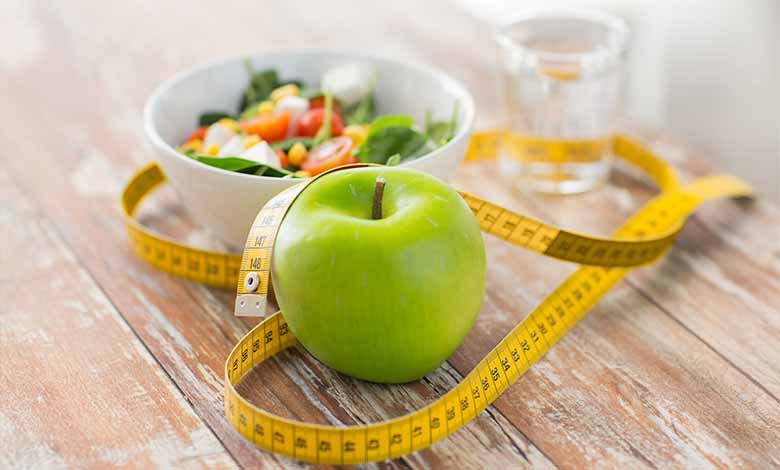Embarking on a journey toward a healthier lifestyle often begins with the foundation of a well-balanced diet. Nourishing your body with the right nutrients is akin to fueling a vehicle with high-quality gas—it helps your body function optimally, supporting everything from physical health to mental clarity.
Table of Contents
Understanding the Components
A balanced diet comprises various components, each playing a vital role in maintaining overall health. Here’s a breakdown:
1. Macronutrients:
Carbohydrates: The primary energy source. Opt for complex carbs found in whole grains, fruits, and vegetables.
Proteins: Crucial for muscle repair and growth. Sources include lean meats, fish, legumes, and dairy products.
Fats: Essential for cell function and energy. Focus on healthy fats like those in avocados, nuts, seeds, and olive oil.
2. Micronutrients:
Vitamins: Found in fruits, vegetables, and fortified foods. They aid in various bodily functions, including immune system support and cell repair.
Minerals: Calcium, iron, potassium, and zinc are vital minerals for bone health, oxygen transport, muscle function, and immune support.
Building Your Plate
Creating a balanced meal involves a mindful combination of these components. Consider the following tips:
1. Fill Half Your Plate with Vegetables and Fruits: They’re rich in vitamins, minerals, and fiber, which aid digestion and overall health.
2. Incorporate Lean Protein Sources: Opt for lean meats, fish, tofu, beans, or legumes. They’re packed with essential amino acids and can help you feel full for longer.
3. Choose Whole Grains: Whole grains provide sustained energy and are rich in fiber, promoting digestive health.
4. Healthy Fats in Moderation: Include sources like nuts, seeds, avocados, and olive oil. They’re heart-healthy and satiating.
Portion Control and Hydration
Maintaining portion control is as crucial as selecting the right foods. Listening to your body’s hunger and fullness cues can help prevent overeating. Additionally, hydration is paramount—aim for at least eight glasses of water a day to keep your body functioning optimally.
Mindful Eating
Beyond the nutrients, embracing mindful eating practices can elevate your relationship with food. Eating slowly, savoring each bite, and being present during meals fosters better digestion and a deeper appreciation for the nourishment you’re providing your body.
Conclusion
Crafting a balanced diet isn’t about strict rules or deprivation; it’s a holistic approach to nourishing your body and mind. Embrace diversity in your meals, listen to your body’s cues, and make mindful choices that prioritize health without compromising on taste and satisfaction.
Remember, a balanced diet isn’t a one-size-fits-all approach. It’s about finding what works best for your body and lifestyle. Consultation with a nutritionist or dietitian can provide personalized guidance on tailoring a balanced diet plan to suit your unique needs and goals. Cheers to your journey toward a healthier, more balanced you!
Frequently Asked Questions about Balanced Diets
1. What exactly is a balanced diet?
A balanced diet consists of a variety of foods that provide essential nutrients, including carbohydrates, proteins, fats, vitamins, and minerals in appropriate proportions to support overall health and well-being.
2. How can I ensure I’m getting all the necessary nutrients in my diet?
Focus on incorporating a diverse range of foods into your meals. Include plenty of fruits, vegetables, whole grains, lean proteins, and healthy fats. Supplements may be necessary if you have specific deficiencies, but a well-rounded diet often covers most nutritional needs.
3. Is it possible to follow a balanced diet while accommodating dietary restrictions or preferences, such as veganism or gluten-free diets?
Absolutely! With careful planning, it’s entirely feasible to meet nutritional requirements while adhering to various dietary restrictions or preferences. For instance, plant-based proteins, gluten-free grains, and alternative sources of key nutrients can be included to ensure a balanced diet.
4. How important is portion control in maintaining a balanced diet?
Portion control plays a significant role in a balanced diet. While the quality of food matters, the quantity matters too. Being mindful of portion sizes helps prevent overeating and supports weight management.
5. Can I still enjoy treats or indulge occasionally while following a balanced diet?
Absolutely! A balanced diet isn’t about deprivation. It’s about moderation and overall patterns of eating. Occasional indulgences can be part of a balanced lifestyle. The key is to savor these treats in moderation while focusing on nutrient-dense foods for the majority of your meals.



